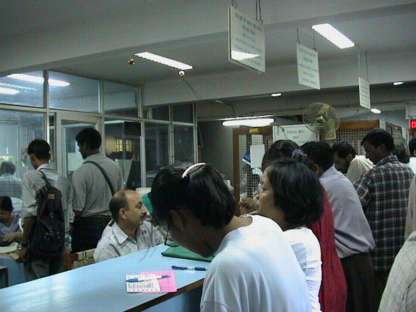 Track2Realty Exclusive-Yearly Analysis: Indian real estate companies are reeling under the burden of debt, so much so that the excess cash that they had borrowed has become a liability that they want to get rid of but are unable to relieve themselves due to various factors beyond their control. They are nonetheless trying all possible measures, from selling land bank to restructuring their portfolio. Track2Realty tries to assess the seriousness of the situation where many of the realtors are caught between the distress sale and the debt trap.
Track2Realty Exclusive-Yearly Analysis: Indian real estate companies are reeling under the burden of debt, so much so that the excess cash that they had borrowed has become a liability that they want to get rid of but are unable to relieve themselves due to various factors beyond their control. They are nonetheless trying all possible measures, from selling land bank to restructuring their portfolio. Track2Realty tries to assess the seriousness of the situation where many of the realtors are caught between the distress sale and the debt trap.
Indian real estate companies, which borrowed heavily during the peak of the economic cycle with rosy business forecast, are now caught in the vortex of piling debt post-slowdown. Most of the developers who went on a land bank acquisition with borrowed money are struggling to repay even the interest and banks look reluctant to restructure the debt any more.
With other forms of funding, Like IPO, PE and other measures also drying up, the future looks bleak for many of these companies. The larger players in the business may overcome the tide by selling land banks and other non-core assets, developers with a handful of projects are clueless and caught in a debt trap.
When Knight Frank said in April 2012 that Indian real estate is expected to face “large-scale distress” amid rising borrowing costs and shrinking access to credit that may force developers into fire sales for assets, many developers asserted the debt trap story is not as realistic as it appears.
However, as per industry estimates, all top 11 listed real estate developers started the year with a net debt of Rs.41,700 crore, which was 14 per cent more than the year ago.
“Indian developers will have to repay 1.8 trillion rupees ($40.8 billion) of debt to state-run banks, private equity funds and other lenders over the next two to three years. Their cash flow may also be under pressure as creditors seek earlier repayments,” says Amit Goenka, National Director of capital transactions, Knight Frank.
Realty firms will need to generate strong cash flows to repay their borrowings. According to Fitch Ratings, “Foreign Direct Investment and Private Equity funding have dwindled and a weak equity market no longer makes IPOs a viable option. All this, together with the banks’ cautious approach, limits fund raising options.”
….to be continued





